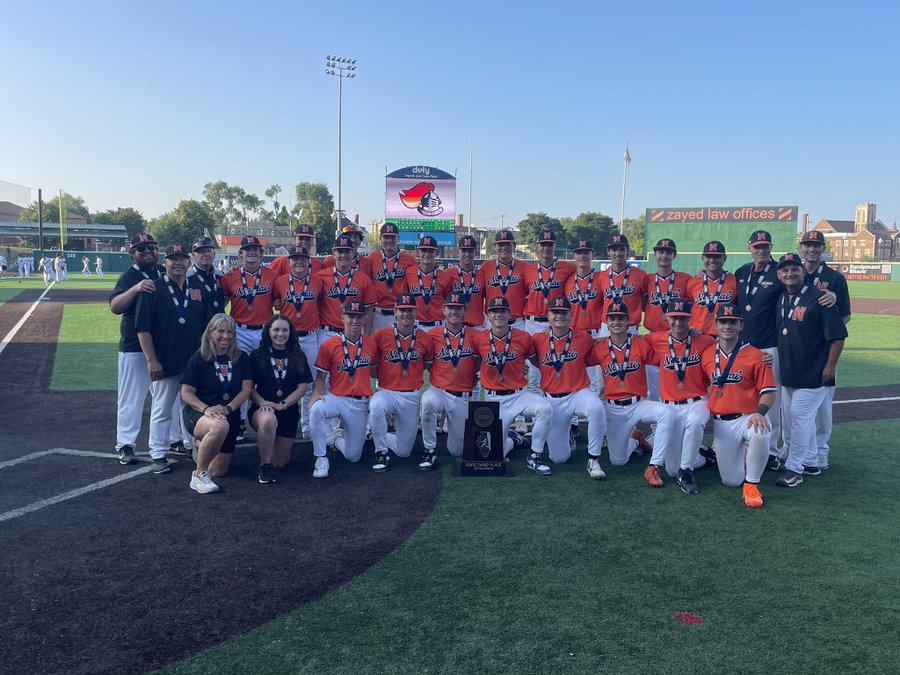“As a teacher it feels like I’m drowning and instead of throwing me a life preserver the district is throwing me lead weights,” Mr. Patrick Lawler, a social studies teacher at NCHS, said at the Unit 5 board meeting on December 9.
Lawler was joined by Normal Community seniors Conner McClelland and Aditi Sharma. The three expressed their concerns to the Unit 5 Board of Education about the controversial grading system that the district is in the process of adopting: standards-based grading (SBG.)
McClelland, who spoke first, referred to a 2017 study published in the Journal of Research in Education that compared one school that used SBG to another that used the traditional grading system.
According to McClelland, the study found that standardized testing scores were lower in the school that used SBG despite both schools producing a similar average GPA.
“Standards-based grading is not adequately preparing students for standardized testing,” McClelland said. “The philosophy instills the opposite work ethic needed to do well.”
Sharma, too, expressed concern about the grading technique’s ability to set students up for educational success. “(SBG) does not prepare students for life after high school,” she said. “The majority of graduates go to college where standards-based is not a thing.”
Both Sharma and McClelland acknowledged that the non-traditional method to grading can be effective in certain classes, but they do not like the idea of teachers being forced to use the system.
While Lawler was the only teacher to speak in front of the board, he made it clear that he is not alone in his views, nor is it the first time a call for change has been made.
“Last year one-hundred teachers signed a petition expressing our concern over SBG at the high school level,” Lawler said. “Nothing was changed substantially as a result.”
Lawler described the toll this school year has taken on students: “Since the start of the year, we’ve been told we need to focus on SBG,” Lawler said. “The district has even created new paid positions to move this initiative forward.
“I’m sorry but SBG doesn’t solve problems we’re dealing right now.”
In a call to action, McClelland said, “I once again ask the district to examine the effects of standards-based grading and our goals moving forward.”
Before the public comments, Unit 5 Superintendent Dr. Kristen Weikle delivered an update about SBG. She said that the plan had been to “roll out the implementation of SBG” in more classes earlier in the year but that the district wanted to make sure that the concept was implemented correctly and that teachers were trained adequately.
“In any good idea . . . if proper training doesn’t occur and proper implementation doesn’t occur then the integrity of that item could be at risk,” Dr. Weikle said, adding that the district is working with an SBG expert to ensure proper implementation.
The board did not remark on the comments of McClelland, Sharma, or Lawler.


![Community honors longtime coach Mr. Bryan Thomas before Oct. 3 game [photo gallery]](https://nchsinkspot.com/wp-content/uploads/2025/10/Thomas-6-1200x1200.jpg)


























![Week 7: Coach Drengwitz recaps the Ironmen’s win over Bloomington, talks Danville [video]](https://nchsinkspot.com/wp-content/uploads/2025/10/Vikings-feature-Image-1200x675.png)

















![Halloween candy cross section quiz [quiz]](https://nchsinkspot.com/wp-content/uploads/2022/10/Candy-cover-big-900x675.png)
![Average Jonah? [quiz]](https://nchsinkspot.com/wp-content/uploads/2022/05/average-jonah-900x600.png)







![[Photo Illustration]](https://nchsinkspot.com/wp-content/uploads/2025/09/trigger-words.png)










![Week 5: Coach Drengwitz previews the Ironmen’s matchup vs. Peoria Manual, recaps Week 4 [video]](https://nchsinkspot.com/wp-content/uploads/2025/09/Week-5-v-Rams-1200x675.png)





![Postgame reaction: Coach Drengwitz on Community’s 28-17 Loss to Kankakee [video]](https://nchsinkspot.com/wp-content/uploads/2025/09/Week-4-postgame--1200x675.png)
![Week 4: Coach Drengwitz previews the Ironmen’s matchup vs. Kankakee [video]](https://nchsinkspot.com/wp-content/uploads/2025/09/Ironmen-v-Kankakee-video-1200x1200.png)
![On the Spot: This or That – Halloween [video]](https://nchsinkspot.com/wp-content/uploads/2024/10/tot-Halloween-YT-1200x675.png)
![On the Spot: This or That – Fall favorites [video]](https://nchsinkspot.com/wp-content/uploads/2024/10/ots-fall-web-1200x800.png)
![On the Spot – Teachers tested on 2023’s hottest words [video]](https://nchsinkspot.com/wp-content/uploads/2024/01/On-the-Spot-Teachers-tested-1200x675.png)









